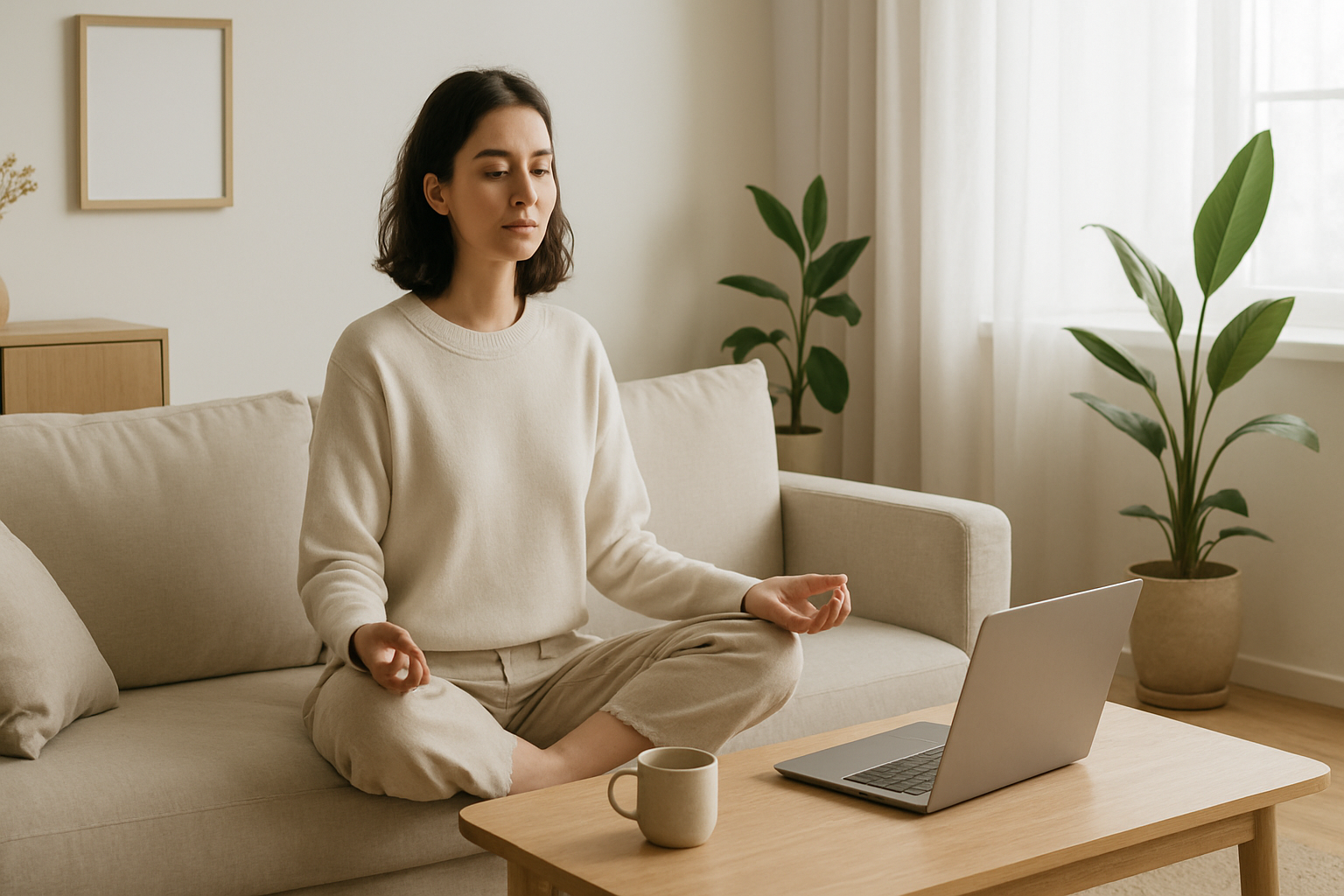
Estimated reading time: 5 minutes
Key Takeaways
- Intentional Living: Focus on what truly matters and eliminate clutter to reduce stress.
- Mental Clarity: Decluttering and simplified routines lead to a clearer and calmer mind.
- Sustainable Choices: Embrace eco-friendly habits that benefit both the environment and your wallet.
- Simple Routines: Establish predictable daily habits to decrease decision fatigue.
- Long-term Benefits: Cultivating a minimalist mindset supports financial freedom and lasting well-being.
Table of Contents
Understanding Minimalist Living: Minimalist Lifestyle and Intentional Living
Minimalism is grounded in a simple philosophy: focus on what matters most and remove anything that distracts from it. Experts describe minimalist living as “the intentional promotion of the things we most value and the removal of anything that distracts us from them”
(source). It means prioritizing quality over quantity and keeping only what serves a purpose or brings joy
(source).
Core Principles of Minimalist Living
- Intentional Living: Make conscious decisions about your possessions, relationships, and commitments.
- Quality Over Quantity: Select fewer, better-quality items.
- Purposeful Surroundings: Keep your environment streamlined to cultivate peace and practicality.
- Essentialism: Regularly re-examine your essentials to ensure they still add value.
Adopting this lifestyle requires a mindset shift, especially in a consumer-driven society. As noted by experts on
Psychology Today, minimalist living is about stepping away from the cycle of constant consumption. Many have found that decluttering not only clears physical space but also enhances mental clarity.
For more insights on embracing intentional living, consider exploring
this detailed guide.
Decluttering Tips for a Minimalist Home: Achieving Mental Clarity
Decluttering is the first practical step toward minimalist living. By reducing physical clutter, you also alleviate mental stress. This process not only simplifies your space but also sharpens your focus.
Practical Decluttering Tips
-
Start by Category or Room: Address one area at a time. For more strategies, check out
this decluttering guide. - The “One In, One Out” Rule: Ensure that for every new item, an old one is removed.
- Donate or Recycle Mindfully: Channel gently used items to local charities or secondhand stores.
Maintaining Organization
- Designate Storage Spaces: Ensure every item has a designated spot.
- Regular Reset Days: Schedule monthly reviews to maintain order.
- Minimize Surfaces: Limit storage units to avoid unnecessary accumulation.
A clutter-free home not only simplifies daily tasks but also creates a serene environment that fosters mental clarity. Learn more about how decluttering can transform your space and mind by exploring the benefits highlighted by
1800 Got Junk and
BetterUp.
For additional tips on smart storage design, visit
this resource.
Creating Simple Routines: Intentional Living Every Day
Establishing simple, predictable routines is key to reducing decision fatigue. When your day follows a repetitive pattern, the mind can relax and focus on what truly matters.
Simplifying Daily Routines
- Meal Planning: Prepare weekly meal plans to reduce stress and costs.
- Capsule Wardrobe: Limit clothing to versatile, mix-and-match pieces.
- Predictable Schedules: Maintain consistent wake-up and sleep times to foster stability.
Streamlined routines have been shown to improve overall wellbeing. As noted by
BetterUp, such structure aids in focus and sleep quality.
To explore more on establishing minimalist routines, see
this guide.
Making Sustainable Choices: Minimalist Lifestyle with Environmental Impact
Minimalist living naturally dovetails with sustainability. By choosing quality over quantity, every purchase can contribute to a healthier planet.
Mindful Consumption for Sustainable Choices
- Buy Quality, Not Quantity: Invest in durable items that reduce waste.
- Shop Local and Secondhand: Support local businesses and reduce packaging waste.
Reducing Waste
- Embrace Reusables: Opt for refillable bottles and cloth bags instead of disposable items.
- Compost and Recycle: Incorporate composting into your routine and take recycling seriously.
These practices not only benefit the environment but also lower your household expenses. To dive deeper into sustainable minimalist living, visit
this resource and read the insights provided by
BCF Contracting.
Cultivating a Minimalist Mindset: Sustaining a Minimalist Lifestyle
Minimalist living goes beyond physical changes—it’s a deep-seated shift in mindset. Reminding yourself of your “why” is crucial in maintaining this lifestyle.
Staying Committed to Minimalism
- Remember Your “Why”: Regularly reflect on your motivation for simplifying your life.
- Set Personal Goals: Clear goals help you avoid unnecessary purchases and distractions.
- Limit Temptations: Reduce exposure to consumer-driven media to stay focused on minimalist principles.
Thoughtful, Intentional Purchases
Before making any purchase, ask yourself if it truly supports your values and long-term goals. This thoughtful approach has been championed by experts at
Becoming Minimalist.
For more advice on nurturing a minimalist mindset, explore
this resource.
Benefits of Minimalist Living: Mental Clarity and Financial Freedom
Mental Health Advantages
- Increased Mental Clarity: A simpler space leads to a calmer mind.
- Reduced Anxiety: Less clutter means less stress and worry.
- Enhanced Emotional Wellbeing: Intentional living fosters lasting peace and satisfaction.
Financial Benefits
- Financial Freedom: Fewer, more intentional purchases free up money for meaningful experiences.
- Better Budgeting: A minimalist approach makes it easier to pinpoint and cut unnecessary expenses.
- Savings Over Time: Investing in quality items prevents frequent replacement costs.
These benefits are well-documented by sources such as
1800 Got Junk,
BetterUp, and
BCF Contracting.
For further reading on financial advantages in minimalist living, check out
this guide.
Conclusion: Start Your Minimalist Lifestyle Journey
Minimalist living offers a powerful way to simplify your life, enhance mental clarity, and gain financial freedom. By understanding the core principles, applying decluttering tips, establishing simple routines, making sustainable choices, and nurturing a minimalist mindset, you set the stage for a calmer, more focused life.
Begin your journey with small steps: declutter one area, tweak your daily routine, or make a single sustainable change. Every action builds toward a life marked by intention and clarity.
Frequently Asked Questions
What is minimalist living?
Minimalist living is a lifestyle focused on reducing clutter, simplifying daily routines, and emphasizing what truly matters in life. It involves intentional choices that enhance mental clarity and financial well-being.
How can minimalism improve my mental health?
By decluttering your physical space and streamlining your routines, you reduce distractions and stress, which can lead to improved focus, lower anxiety, and overall mental clarity.
Are sustainable choices a part of minimalism?
Yes, making sustainable choices—like buying quality items, embracing recyclables, and reducing waste—not only supports a minimalist lifestyle but also benefits the environment.
Where can I learn more about minimalist routines?
For further insights and practical tips, visit
this resource on minimalist routines.

Leave a Reply